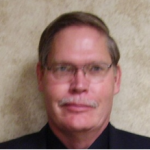Overview
This webinar will help you understand the important of CASH. Cash is a key part of any organization’s continued growth, performance and success. All businesses require cash flow to operate. Over time a company’s profits are of little value if they are not accompanied by cash flow. “You can’t spend profits”.
As small business managers, officers and owners, we know an effective cash-flow is a requirement for any organization. Maintaining a good cash management system enables you to make timely vendor payments, inventory purchases, pay cost of goods expenses and operating expenses. Poor cash-flow can incur poor credit terms, delay in products being delivered, employee issues, hefty fines, penalties, stricter government laws and rules.
Learning Objectives
- The need for planning “CASH”
- How six drivers impact the business
- Establishing cash controls
- Understand fundamentals of cash management,
- How to increase your competitive position by understanding the processes
- Learn what you can do each day to maximizes the impacts of cash (the 7 Levers)
- Learn the elements “cash position” & “cash-flow”
- Learn Best Practices
Who Will Benefit from this Webinar or who should Attend
- Company’s Owners, Officers
- Managers, Supervisors
- Team/ Section Leaders
- Department Heads / Managers
- Employees
- Compliance Officers
- Accountants
- Branch Managers
- Anyone who wishes to increase or refresh their knowledge of Cash Controls and Cash management .
Presenter – David Sanders
 David Sanders has over 36 years in the accounting & finance field having served as an accountant, corporate controller, and CFO . He has authored 4 books, 6 audio tapes, and has done countless seminars relating to business, accounting, finance, business operation and efficiencies. David is considered a world leading consultant on finance, business operations, turn-arounds, and government fund accounting having traveled the world serving companies large and small. He also consults on contract fraud, internal controls, and accounting & finance for non-financial Managers. David has degrees in finance, taxation, and accounting.
David Sanders has over 36 years in the accounting & finance field having served as an accountant, corporate controller, and CFO . He has authored 4 books, 6 audio tapes, and has done countless seminars relating to business, accounting, finance, business operation and efficiencies. David is considered a world leading consultant on finance, business operations, turn-arounds, and government fund accounting having traveled the world serving companies large and small. He also consults on contract fraud, internal controls, and accounting & finance for non-financial Managers. David has degrees in finance, taxation, and accounting.
